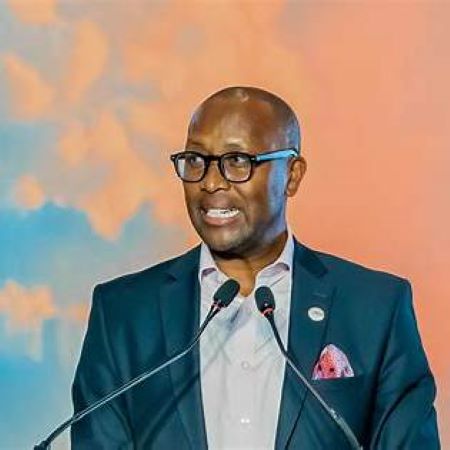The decision by the United States to withdraw from the World Health Organisation (WHO) has sparked serious concerns about global health security, particularly in Africa, according to Dr. Githinji Gitahi, Group CEO of Amref Health Africa.
In a statement on Friday in Abuja, Gitahi highlighted the financial and operational implications of the withdrawal, which creates a $1.2 billion deficit in WHO’s annual $5 billion budget.
Gitahi underscored the critical role WHO has played for decades in strengthening Africa’s health systems in partnership with WHO Afro and the Africa Centers for Disease Control and Prevention (Africa CDC).
“The WHO has been instrumental in disease surveillance, outbreak control, and the fortification of health systems, while ensuring adherence to the International Health Regulations to prevent the spread of infectious diseases,” he stated.
However, he warned that the U.S. withdrawal could significantly weaken the organisation’s capacity to address urgent health needs, leaving Africa’s fragile healthcare systems vulnerable to disease outbreaks and other public health threats.
With African governments already grappling with debt and limited resources, Gitahi said the funding shortfall would be difficult to address without increased support from other nations and philanthropic organisations.
“This financial gap jeopardizes WHO’s ability to respond effectively to accelerating disease outbreaks fueled by climate change and human-environmental conflicts, placing millions of lives at greater risk,” he added.
Gitahi called on the U.S. to reconsider its decision and rejoin the WHO, emphasizing the importance of international collaboration to tackle interconnected health challenges.
“The withdrawal undermines decades of progress in global health and poses a significant threat to public health security. Now is the time for the world to come together to combat the rising risks posed by infectious diseases,” he said.
He reiterated that a united global effort, spearheaded by organisations like WHO, is essential for safeguarding health systems and ensuring a healthier future for all.


